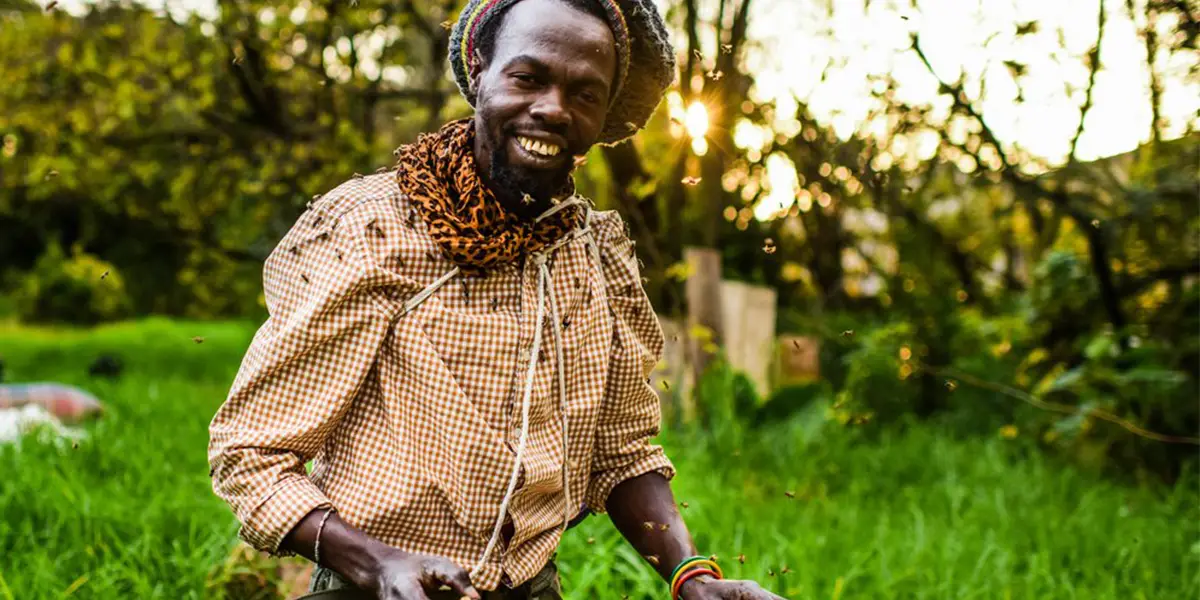Beekeeper Runs Ultra Marathons Backwards For An Odd But Satisfying Reason

By Amanda Froelich Truth Theory
Meet Faraj Chinomwe, an activist, beekeeper, and ultra marathon runner who likes to raise awareness about the plight of the honeybees. In fact, he’s so passionate about keeping the bumbling insects alive, he’s run dozens of ultra marathons all while facing the wrong way.
As GoodNewsNetwork reports, the South African beekeeper developed a fondness for running backwards when he returned home from a bee removal and his car broke down. Inside the vehicle, sitting on the backseat, was a crate of anxious pollinators. Chinomwe felt rushed to get the bees home, so he began to push the car.
After a while, the tiresome task began to wear on him. So, Chinomwe turned around and started to push it backwards. He learned that he had more strength and direction when pushing this way.
The experience prompted Chinomwe to begin running backwards. His hope is to inspire people to think about honeybees. Since the fateful day his car broke down, the activist has run dozens of ultra marathons all while facing the wrong way. And for those who don’t know, an ultra-marathon is much longer than a typical 26-mile (42 kilometers) marathon distance.
Believe it or not, Chinomwe is succeeding in his mission. The peculiar habit of running backwards has caught thousands of peoples’ attention. The beekeeper uses the attention to promote his bee removal service, Blessed Bee Africa. He also likes to educate youngsters on beekeeping and how they can nourish the world by keeping the pollinators alive.
Watch the video below to learn more:
Without honeybees, many of the foods you and I enjoy will no longer be available in supermarkets. Apples, avocados, bok choy, broccoli, cantaloupe, carrots, cauliflower, celery, cucumbers, eggplants, green onions, kale, mangos, mustard greens, summer, squash, and zucchini — and more foods — will all but disappear from shelves. If this is a reality you do not want to experience, share this news to raise awareness. There are other ways you can take action to help the honeybees, too. Click here to learn more.
What are your thoughts? Please comment below and share this news!
Leave Comment: